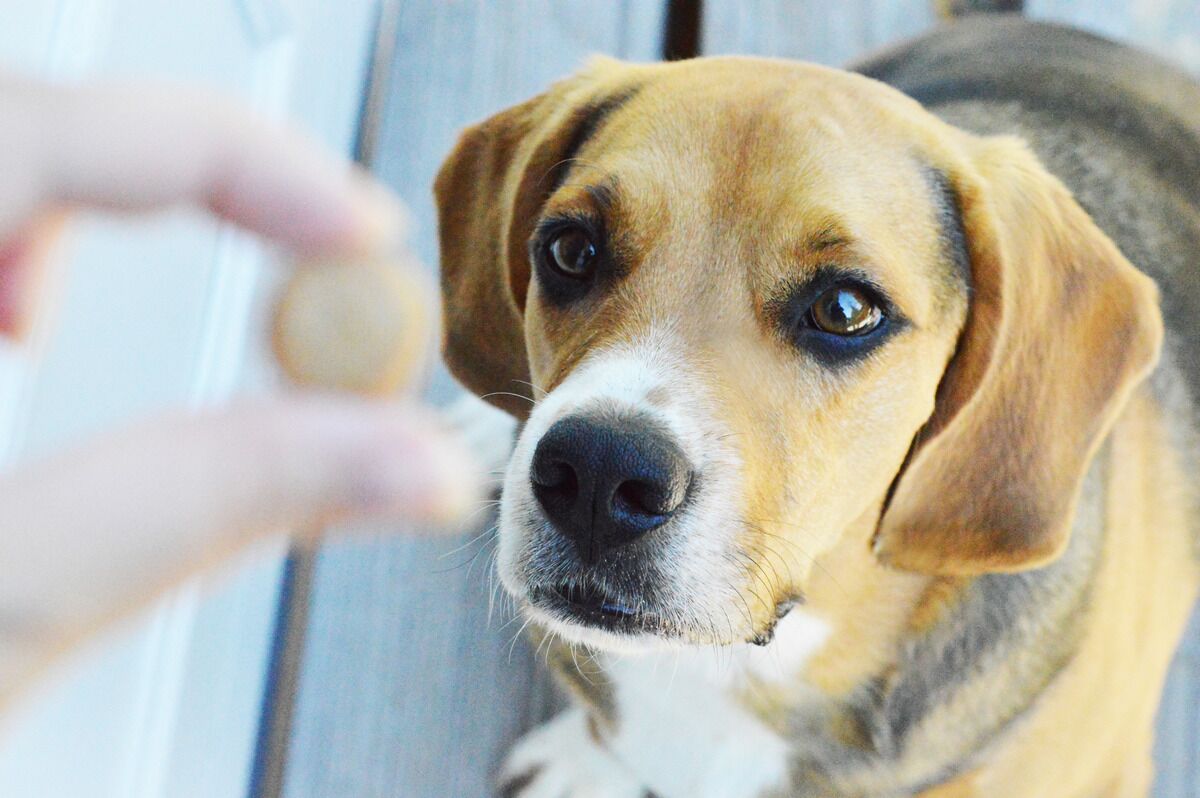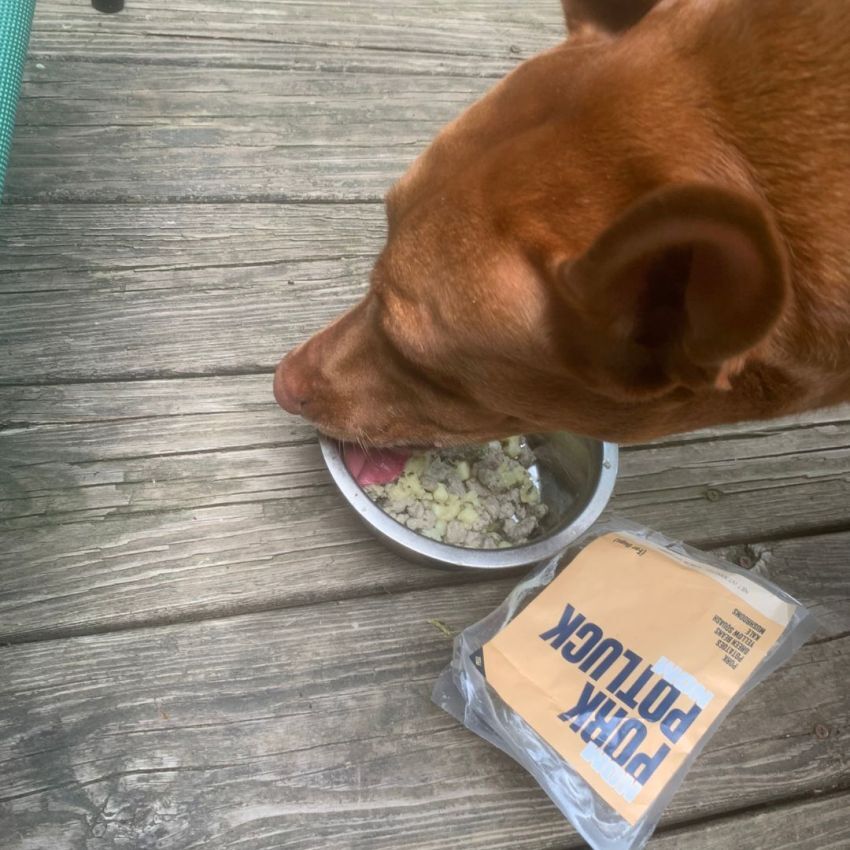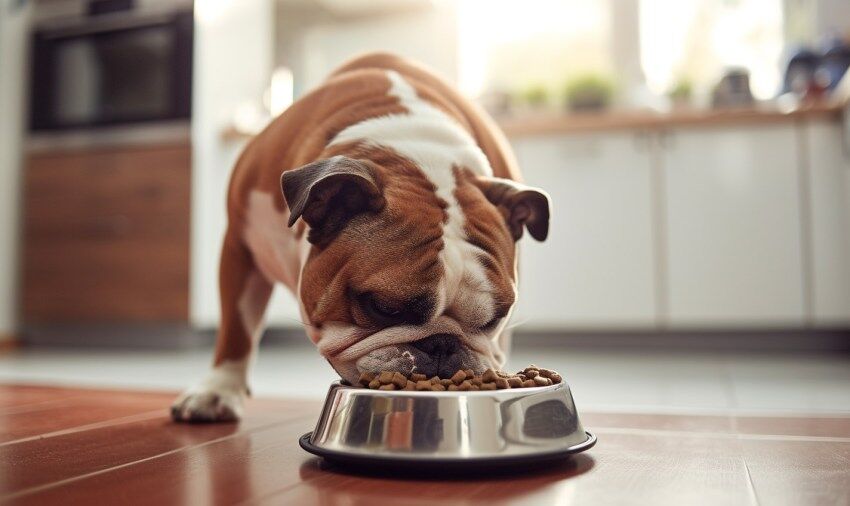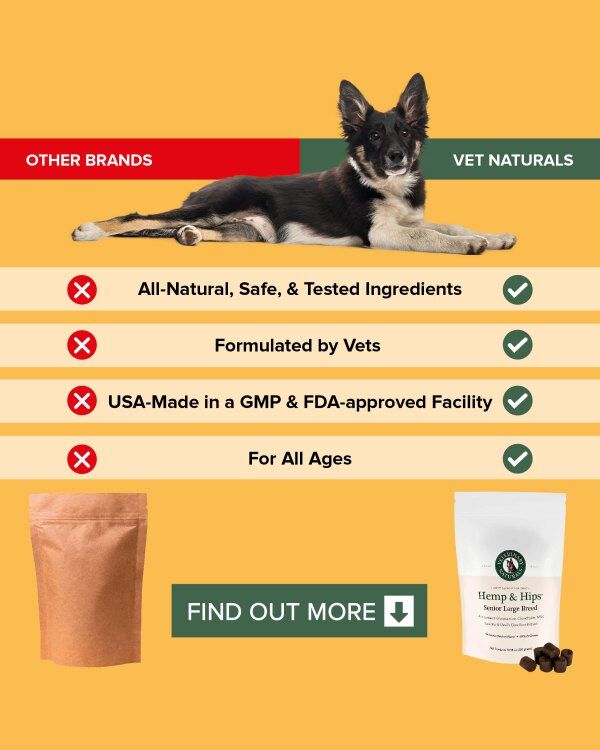
Why is my dog not eating his food but will eat his treats? This is not an uncommon question that dog owners ask, and there are a few possibilities as to why your dog has gone off their food, but not necessarily lost his appetite. Let’s take a look at the possible causes and how to get your dog to eat again.

Why Is My Dog Not Eating His Food But Will Eat Treats?
Before we get into the common reasons for dogs eating treats but not food, I just want to remind you that this is NOT medical advice. If you have any concerns about your dog’s health or diet, please consult your vet.
Poor quality food
One common reason that dogs stop eating their food is that many dog foods so low quality that they aren’t very pleasant for Fido to eat. I know it might not seem like it considering the things that they do sometimes eat, but dogs have pretty decent instincts when it comes to their nutrition.
They have highly developed senses of taste and smell, so they can actually detect chemicals and additives in low-quality food that might not be appealing. Higher-quality foods, on the other hand, often contain better sources of protein and fats, which naturally taste and smell more appealing to a dog.
Low-quality foods might contain fillers and by-products that are harder for dogs to digest, causing discomfort or gastrointestinal issues. Dogs quickly learns that eating such food makes them feel icky, so they avoid it.
What you can do
Look for nutritionally complete dog foods online with real, recognizable ingredients like fruits and vegetables and high-quality sources of protein like chicken and fish, as well as healthy carbs like whole grains, omega fatty acids, and no fillers like gluten, meat by-products, GMOs, or artificial additives.

They don’t like the flavor.
If you already get your dog good quality food, but they still won’t eat it, they may just not like the flavor! This is likely if the problem started after you changed their food. Beware that sometimes brands also change up their recipes, and although we may not notice, our dogs do!
Contrary to popular belief, not all dogs will eat whatever is put in front of them. A lot of dogs are fussy eaters. Some breeds, such as Poodles and Shih Tzus, more than others!
What you can do
Most brands offer multiple flavors of foods, so switch up the flavor of your dog’s food and see what happens. If they didn’t like a certain flavor, avoid it in the future.
They’re bored.
If your dog won’t eat his food but used to eat it in the past, they may have just gotten bored of it! Just like us, dogs get bored of eating the same thing day in and day out. So, if it’s been a while since you changed up their food, consider making a change.
What you can do
If your dog eats dry kibble, consider adding some warm water to unleash the flavor and give it a different texture or adding some cooked chicken, fish, garden vegetables, or homemade gravy to the bowl. Alternatively, you can try a different flavor from the brand or a new brand altogether.
You could also try wet food, soft food, a mixture, or add a meal topper to make things more exciting. Fresh, wet and soft foods, and foods that have been air-dried, freeze-dried, or slow cooked tend to be richest in flavor.
Allergies
Another reason for your dog not eating their food could be that they’re intolerant or allergic to something in it. Perhaps you recently changed your dog’s food and they have noticed that they don’t feel good after eating it, so they avoid it.
If your dog has experienced stomach upsets or changes in coat and skin since switching to a new food, they might be allergic to something in it. Common dog food allergies include wheat, dairy, eggs, soy, and common meat proteins like chicken and beef.
What you can do
If you’re concerned, speak to your vet about doing an elimination diet or try a hypoallergenic dog food. We also recommend looking for foods with additional antioxidants and pre & probiotics for digestive support and immune health.

They don’t feel well
Your dog may also avoid mealtimes but still take treats because they don’t feel well. They may not have a big enough appetite for a whole meal, but still take small treats if they are offered. Plenty of things can make a dog lose their appetite, including dental problems, gastrointestinal problems, infections, injuries, parasites, medications, and more.
When to see a vet
If the problem persists and/or you notice a change in your dog’s weight or behavior, you should consult your vet as soon as you can to get to the bottom of the problem.
Stress & anxiety
Stress can also cause dogs to go off their food, but, again, they may still take treats if they’re accompanied by attention and praise. Common causes of stress in dogs include travel or unfamiliar surroundings, traumatic experiences, phobias, loss, separation anxiety, and extreme under-stimulation.
What you can do
Stress caused by lifestyle changes can be relieved by providing a stable daily routine and lots of love, while ongoing behavioral issues can be treated with positive association training. Anti-anxiety products like plug-ins, chew toys, and supplements can help, too.
Their feeding station
Consider the cleanliness and placement of your dog’s food bowl. If they’re avoiding their food, it may be because their bowl is dirty or damaged, or placed in a noisy or off-putting part of the home. For example, if something off-putting like a scary noise happens around your dog’s food bowl, it can cause them to start avoiding it.
What you can do
Make sure your dog’s bowl is in good condition and clean it regularly to keep it so. Feed your dog somewhere peaceful in the home and try to stick to a feeding routine so that they eat at roughly the same time every day. Keep mealtimes positive and praise your dog when they eat their meal and maybe try a puzzle bowl to spark their interest.
Poor eating habits
You should also consider your dog’s eating habits. If they’re overweight and/or being given lots of treats outside of their mealtimes, especially rich human foods that aren’t meant for dogs, they may decide to stop eating their food as it doesn’t taste as good, so that they can get more stuff from you.
This is a big no-no. Whilst we like to share what we love with our dogs, anything processed is just as bad for them as it is for us, but their bodies are much smaller and can be overfed and overindulged much easier. It’s also our responsibility as owners to make dietary decisions for them and keep them alive & healthy for as long as possible.
What you can do
Talk to your vet about how much your dog should be eating and cut down on treats following their guidelines. Don’t feed them anything that’s unnatural or not meant for them and start making mealtimes fun by experimenting with textures, flavors, and puzzle feeders.
If you’ve looked through our post and still aren’t sure what the problem is or you’ve tried everything and still feel lost, talk to your vet or consult a behaviorist as soon as possible.






